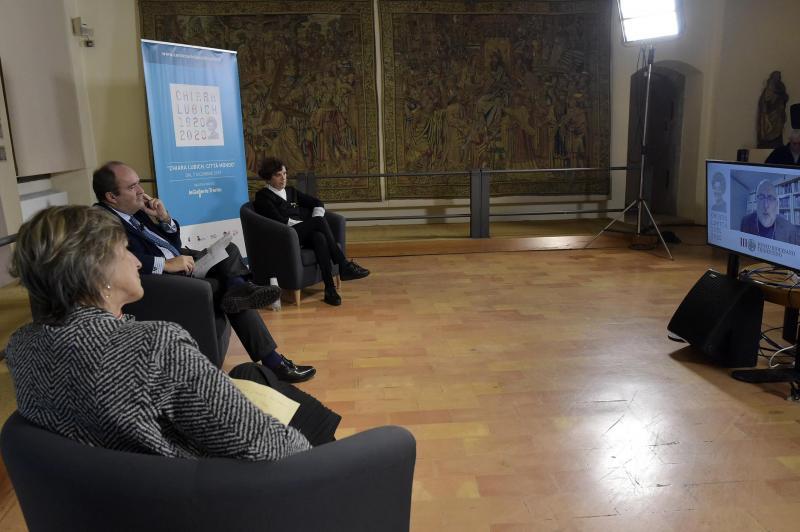
If we were referring to a show or a movie, we could talk about a "great success with the public": and this is precisely what happened with the panel about "The alliance between man and woman in the thought of Chiara Lubich", moderated by Alberto Faustini, editor-in-chief of L'Adige. Almost 500 people form the whole world followed the live broadcast, and four times as much watched the video later.
The director of the Museo diocesano tridentino, Domenica Primerano, opened the discussion wondering whether Chiara Lubich had ever seen a painting in that museum, representing Saint Clare; and whether this had inspired her in being "a frontier woman, who opened new ways by choosing to remain in the world".
The copresident of the Focolare Movement, Jesùs Moràn, focused on how, in Chiara Lubich's vision man and woman are "two full entities that complete each other" by reaching "not union, but unity". He also stressed that Chiara Lubich wanted a lay women for the presidency of the Movement, and a male priest as co-president; thus representing not only the alliance between man and women, but also between lay and consecrated members of the Church.
The journalist Maddalena Maltese, live from New York, discussed how the sipirituality of Chiara Lubich in this specific aspect also affects daily life and work. She recalled that Chiara taught her to look for the presence of "the sacred and the divine" in every contradiction, to see the person before any other thing: be they man or woman, christian or not. "I don't know if this came from her being a woman - she said -, but for sure it came from her being a world-person".
Professor Barbara Poggio emphasized the importance of the "gentle revolution" carried out by a young woman in a Church which was mostly guided by elderly men; and of her asking Pope John Paul II the approval for the decision of having a lay and elected women as president of the Focolare, which was a new thing in the Church at that time. An important decision, she said, not only in the view of gender equality, but also of social and economic equality.
Finally Lucia Fronza Crepaz launched a significant proposal: "Why not imagine that we have in our governments, at all levels, a dual alliance man-woman?".